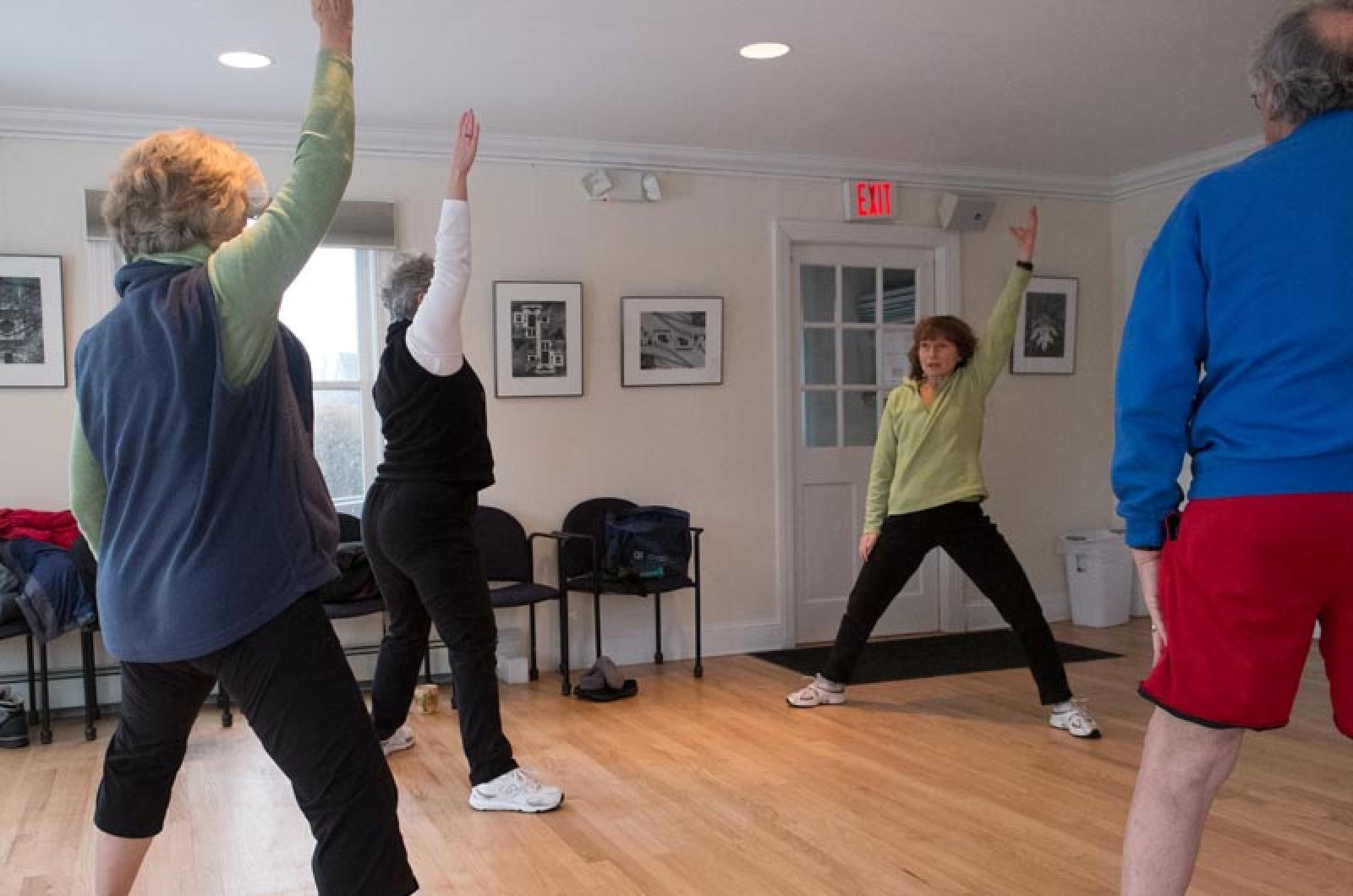A small army of volunteers is working to expand services for the Island’s rapidly aging population.
The Healthy Aging Task Force, a coalition of more than 70 volunteers and 37 organizations, has spent the last two years working to identify areas of need. Now the group is working to raise public awareness and complete a long-term strategic plan.
Housing and transportation, along with information and referral services, have been identfied as top priorities.
Voters in down-Island towns tomorrow will be asked to approve funding for two information and referral services.
The task force grew largely out of the Rural Health Scholars Program, a program at the University of Massachusetts Medical School which sends medical students to rural areas to intensively study a community health issue. Lyme disease and the elderly populaton are among the topics that have been studied here.
Statistics from the U.S. Census Bureau, the Donahue Institute at the University of Massachusetts, the National Alzheimer’s Association and other sources provide a backdrop for the healthy aging initiative. The Vineyard is already the fastest growing county in the state, and by 2030 the year-round population is expected to expand by a third.
The Island senior population is outpacing both state and national averages. The main factors are an influx of baby boomers drawn to the Vineyard, and the many seasonal residents who choose to retire here, said Peter Temple, task force acting executive director.
By 2060, the number of year-round Islanders over 65 is expected to almost triple, to about 8,000, with more than 50 per cent of the overall population expected to be caregivers. Mr. Temple said the hardest figures to get a handle on are the number of elders in financial need due to low income, high housing costs or other factors.
“Some percentage of our elder population does not have enough income to feed and house themselves properly. And that means they may not be getting the care they need either,” he said, adding: “The worst of it isn’t going to hit for awhile.”
The aging population is expected to create demand for new and expanded services. The task force includes seven volunteer groups focusing on areas such as caregiver support, housing and transportation. Among other short-term goals, the group is looking to establish a volunteer time bank.
Mr. Temple said the rural scholars program found an informational gap, where seniors, family members and even doctors were unaware of the full range of services offered on the Island. As another short-term goal, the task force is hoping to gain town support for two information and referral systems, My Senior Center and First-Stop.
If they funding from Island towns, the programs would be administered by the county and the task force. The task force was created by the Dukes County Health Council and is funded by grants and donations.
An anonymous donor from the Island has offered to cover the startup costs for both of the information and referral programs, which would total about $45,000, but only if the articles pass at the town meetings. Edgartown and Oak Bluffs have included both proposals on their warrants, while other towns have opted to include the items in the annual council on aging budgets. Tisbury’s warrant will only include the First-Stop request.
The annual operating cost for First-Stop, including a new staff position, computers and maintenance, would be $79,800 per year, split among the six towns using a formula based on population and property values. My Senior Center would cost about $5,000 in the first year, but only if all six towns opt in. Otherwise it would cost about $7,500. Edgartown plans to purchase the program anyway, but in that case it would not be accessible to residents of other towns.
If all towns adopt My Senior Center, the company will grant an enterprise license to the Healthy Aging Task Force and the service would be available at senior centers Islandwide. The service would have the added benefit of sending automated annual reports to the state, which workers at the senior centers now have to complete by hand. There will likely be a learning curve, Mr. Temple said, but if it wins approval, he hopes the program would be up and running by the end of the summer.
He said the state already offers some information and referral services but they are not comprehensive. He said My Senior Center has been installed in about 900 communities around the country.







Comments (1)
Comments
Comment policy »